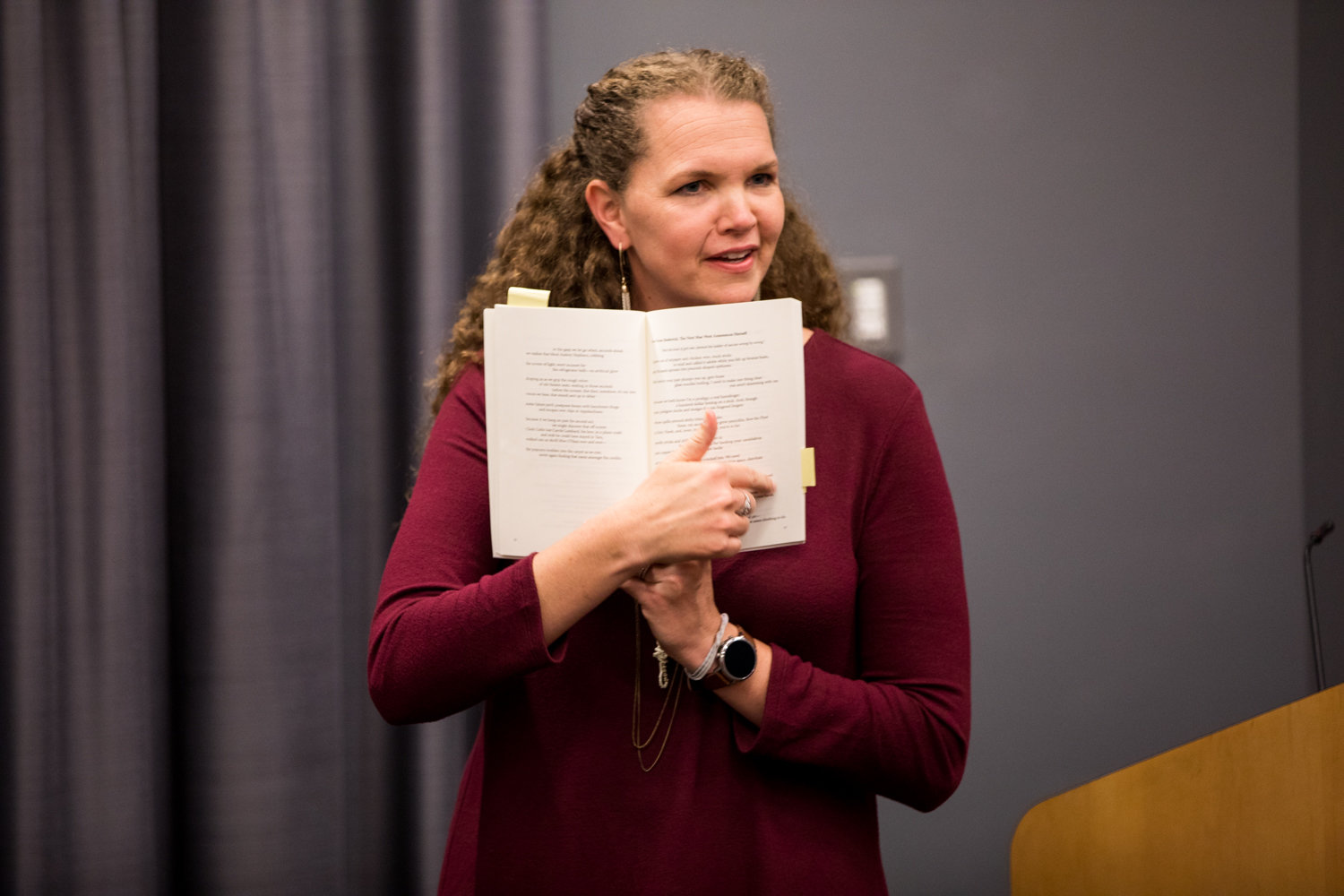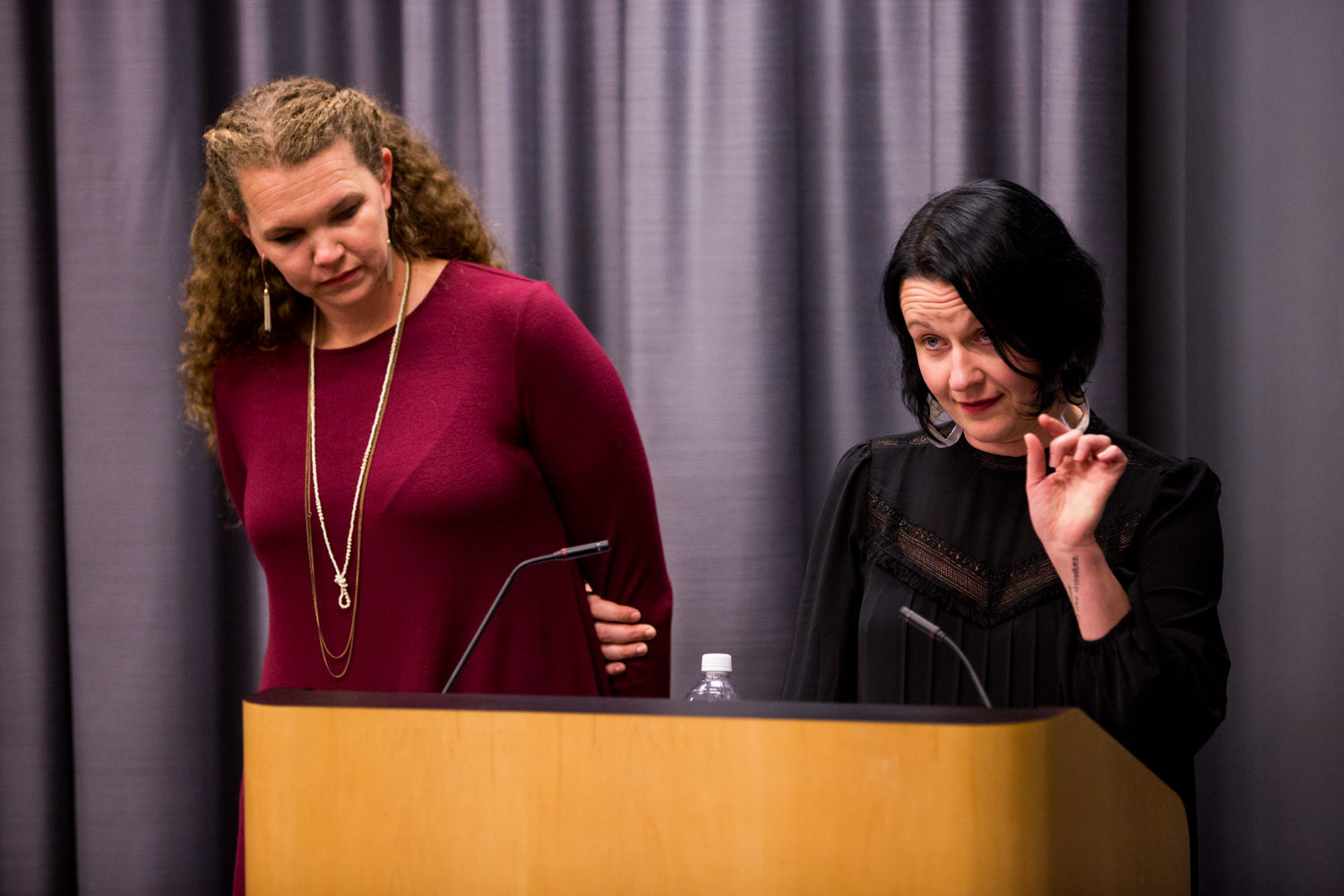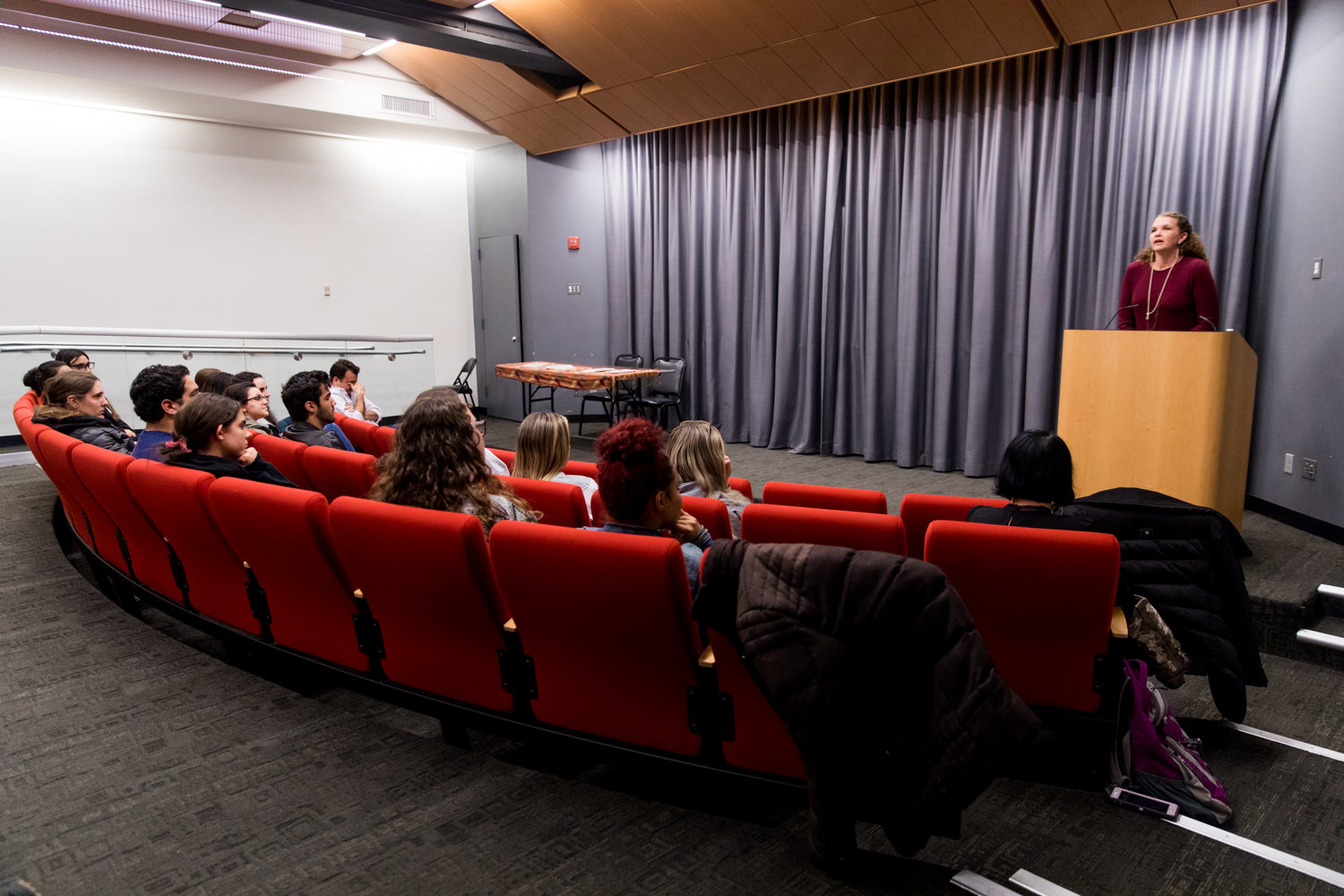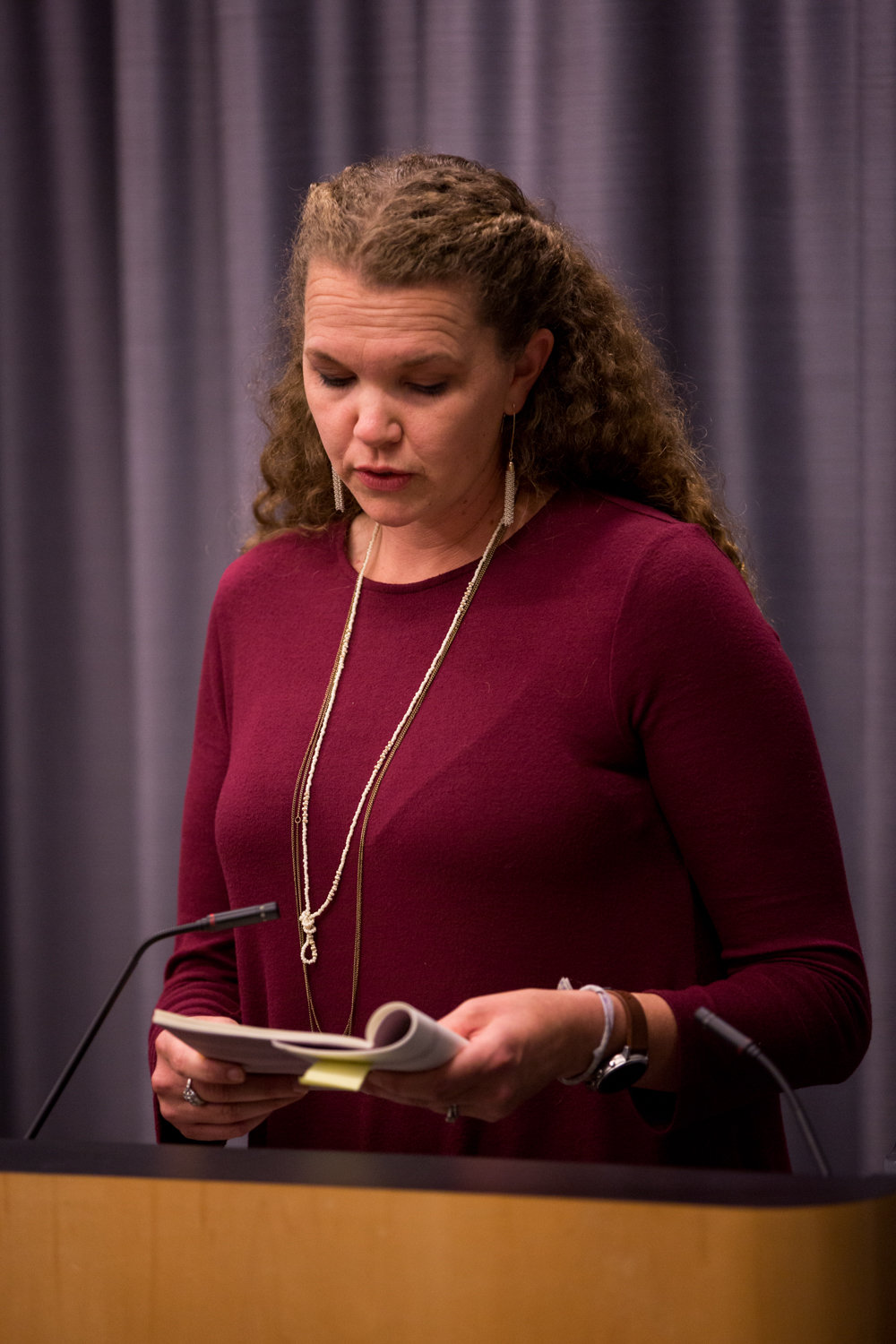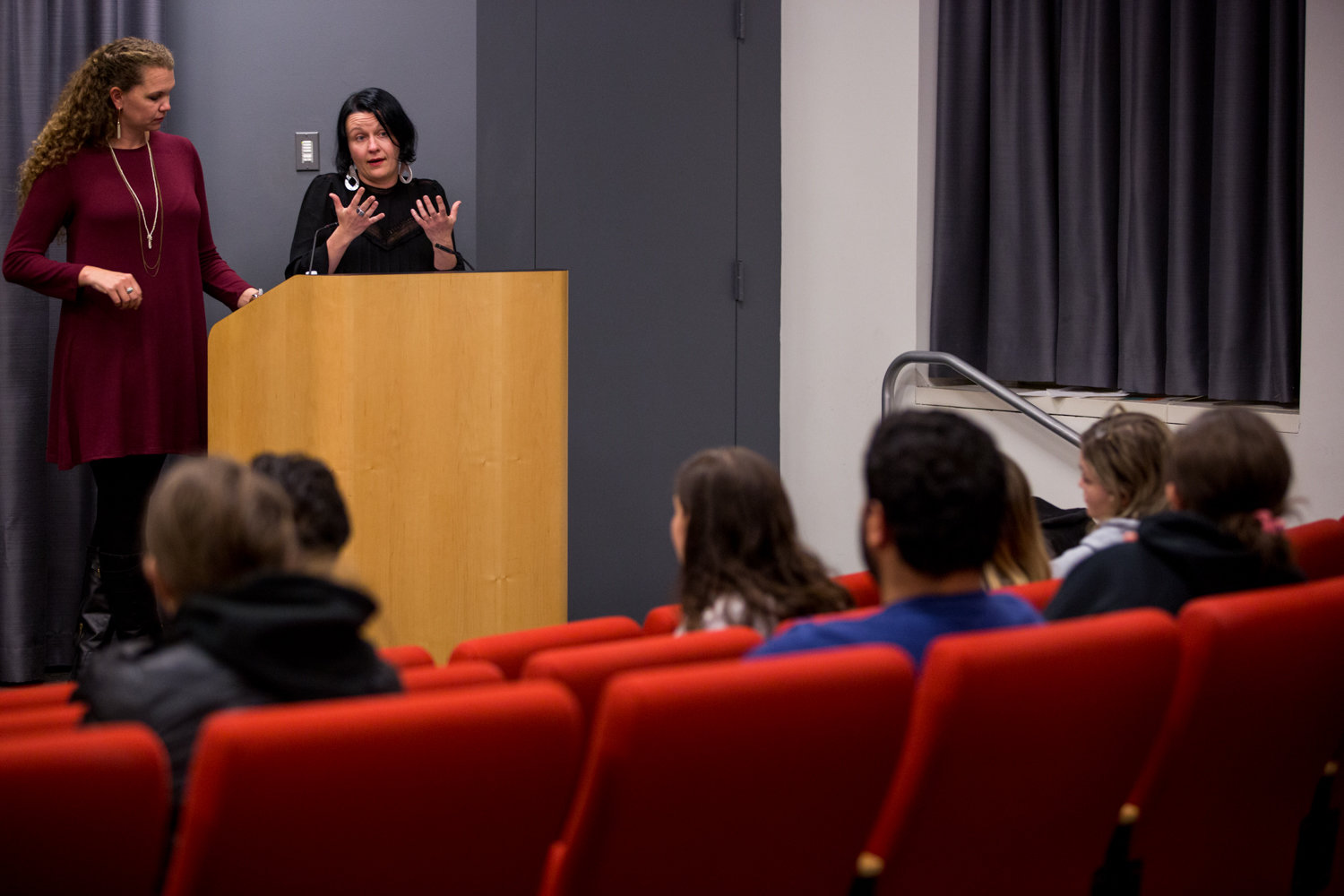Poets pay it forward at Manhattan College reading series
In the outskirts of Los Angeles, in the shadow of Alhambra, lies an estate called The Huntington.
It’s there where documents and journals of famous American photographer Edward Weston are archived, along with the work of his assistant — and wife — Charis Wilson. One of the first photographers to receive the Guggenheim Fellowship in 1937 — and a prize today worth more than $36,000— Weston ended up in California in order to photograph the West Coast.
For years, the spotlight of history has remained fixed on Weston and his photography, his connection with famous photographer Ansel Adams, his prowess, and his skill. Yet it was two poets from this century — Sarah Grieve and Dominika Wrozynski — who finally stumbled upon the truth.
The fact is, Weston could have never done it without his wife. Wilson organized it all — the trip, the equipment, the camera angles — and made sure to document every whim, thought and action in a series of typewritten notes.
Wilson was, in the estimation of both Grieve and Wrozynski, a fine writer as well.
This revelation inspired Grieve and Wrozynski to take on a new poetic project together.
“We wanted to say something about Charis, but also about what both she and Weston found on that trip,” said Wrozynski, an English professor at Manhattan College. “Photos of the desert and of death, but also the story of both of them — together and separate — was something important to us.”
Wrozynski and Grieve — an English professor at Cuesta College, located about three hours south of San Jose, California — took it upon themselves to reveal the emotional reality of Wilson and Weston’s relationship via their West Coast journey. The poets’ own journey through the California desert and the wild forests up north became something more.
They began a series of poems taking the form of communications and dialogue not just between Weston and Wilson, but also Grieve and Wrozynski. This dynamic and intricate structure is only achievable by two lauded and recognized poets.
Both Grieve and Wrozynski are award winning poets. Grieve received the Palooka Press Chapbook award for her 2014 collection “Hold My Tongue,” and has been published by respected literary publications like Waxwing, Bayou, Cimarron Review and Rattle.
Wrozynski, likewise, has worked with the New York City Ballet to produce a poem based upon a chosen performance. Her poetic interpretation of Jerome Robbins’ “Dances at a Gathering” was well received. Her work has been published by the likes of Slipstream and Rattle, and her 2018 book of poems “American Accent” won the Evening Street Press’ Sinclair Prize.
Four poems from the duo’s currently untitled project were shared at a recent Manhattan College reading series alongside Grieve’s book “Winged.” The series, started by poet David Eye and Wrozynski’s colleague Adam Koehler in 2010 has featured the work of renowned authors such as Pulitzer Prize winner Junot Diaz, and writers Fatimah Asghar, Jennifer Egan and Grieve herself.
“Reading series made a world of difference to me as a writer,” Grieve said. “To hear people and ask them questions were so important. These are so important to a writer’s education.”
Yet, education doesn’t usually involve stories and poetry from the experiences of who is seemingly very much a stranger. That evening’s reading series, however, was populated by an audience enthralled by the poets’ tales of desert journeys and youthful desires. They were enraptured and quiet, careful and searching.
From the stage, the poets’ voices carried through the auditorium of bright red chairs, the listeners cloistered together in the front as though around a campfire. That level of direct interaction and care between a live writer and an audience of potentially aspiring future fellows is at the heart of Wrozynski and Koehler’s vision for the series.
“Adam and I want to give the students as much access to the visiting poets as possible,” Wrozynski said. “It’s a matter of accessibility and generosity.”
That generosity was achieved in spades by Grieve.
“Sarah got poems from some students ahead of the reading today and had appointments with each individual about their work,” Wrozynski said.
Some of those students were in the audience that evening, interacting with Grieve later following the reading.
“They were lovely,” Grieve said. “They each had great work.”
The two poets are no stranger to the importance provided by events and readings given by visiting poets. Having studied together in writer’s workshops in Tallahassee, Florida, both were surrounded not only by fellow writers, but also vital teachers.
“Dominika and I were trained by poets who had that generosity of spirit,” Grieve said. “That meant the world to me.”
Teachers like that inspired Wrozynski and Grieve to journey westward and find something worthy of creation. In California, through farce and folly, fury and joy, the two discovered the reality of Charis Wilson, someone otherwise overshadowed by the man she lead up and down the Pacific Ocean coastline. Both brought this story to New York City for a single night, for a room of students who were able to engage with and hear from a living poet.
And that’s something quintessential to the series, for now and for the future.
“When you’re exposed to new ideas or new stories or teachings, it’s a bright spot of college,” Grieve said. “And as a poet, major or minor, having an opportunity like this, you want to pay it forward.”

